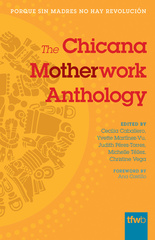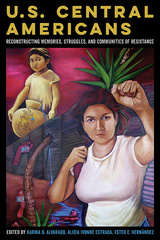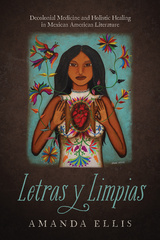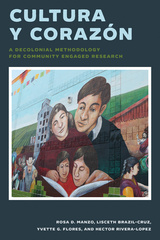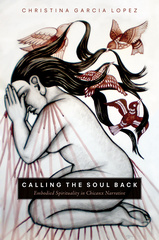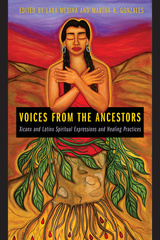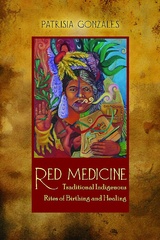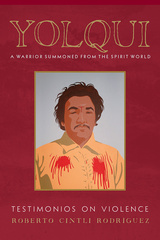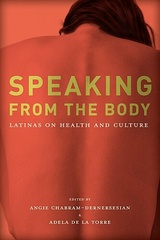Fleshing the Spirit
Spirituality and Activism in Chicana, Latina, and Indigenous Women’s Lives
Edited by Elisa Facio and Irene Lara
The University of Arizona Press
Fleshing the Spirit brings together established and new writers exploring the relationships between the physical body, the spirit and spirituality, and social justice activism. Examining the complex and dynamic connections among these concepts, the writers emphasize the value of “flesh and blood experience” as a site of knowledge. They argue that spirituality—something quite different from institutional religious practice—can heal the mind/body split and set the stage for social change. Spirituality, they argue, is a necessary component of an alternative political agenda focused on equitable social and ecological change.
The anthology incorporates different genres of writing—such as poetry, testimonials, critical essays, and historical analysis—and stimulates the reader to engage spirituality in a critical, personal, and creative way. This interdisciplinary work is the first that attempts to theorize the radical interconnection between women of color, spirituality, and social activism. Before transformative political work can be done, the authors say in multiple ways, we must recognize that our spiritual need is a desire to more fully understand our relations with others. Conflict experienced on many levels sometimes severs those relations, separating us from others along racial, class, gender, sexual, national, or other socially constructed lines.
Fleshing the Spirit offers a spiritual journey of healing, health, and human revolution. The book’s open invitation to engage in critical dialogue and social activism—with the spirit and spirituality at the forefront—illuminates the way to social change and the ability to live in harmony with life’s universal energies.
Contributors
The anthology incorporates different genres of writing—such as poetry, testimonials, critical essays, and historical analysis—and stimulates the reader to engage spirituality in a critical, personal, and creative way. This interdisciplinary work is the first that attempts to theorize the radical interconnection between women of color, spirituality, and social activism. Before transformative political work can be done, the authors say in multiple ways, we must recognize that our spiritual need is a desire to more fully understand our relations with others. Conflict experienced on many levels sometimes severs those relations, separating us from others along racial, class, gender, sexual, national, or other socially constructed lines.
Fleshing the Spirit offers a spiritual journey of healing, health, and human revolution. The book’s open invitation to engage in critical dialogue and social activism—with the spirit and spirituality at the forefront—illuminates the way to social change and the ability to live in harmony with life’s universal energies.
Contributors
Volume Editors
Elisa Facio
Irene Lara
Chapter Authors
Angelita Borbón
Norma E. Cantú
Berenice Dimas
C. Alejandra Elenes
Alicia Enciso Litschi
Oliva M. Espín
Maria Figueroa
Patrisia Gonzales
Inés Hernández- Avila
Rosa María Hernández Juárez
Cinthya Martinez
Lara Medina
Felicia Montes
Sarahi Nuñez- Mejia
Laura E. Pérez
Brenda Sendejo
Inés Talamantez
Michelle Téllez
Beatriz Villegas
A comprehensive collection of feminist spirituality will be incomplete without this volume.'—Publishers Weekly
‘This is the first book that attempts to theorize the connection between the brown female body, spirituality, and social activism, or to argue that spirituality is a necessary component of an alternative political agenda.’—Edén E. Torres, author of Chicana Without Apology: The New Chicana Cultural Studies
A comprehensive collection of feminist spirituality will be incomplete without this volume.'—Publishers Weekly
‘This is the first book that attempts to theorize the connection between the brown female body, spirituality, and social activism, or to argue that spirituality is a necessary component of an alternative political agenda.’—Edén E. Torres, author of Chicana Without Apology: The New Chicana Cultural Studies
Collectively these scholars provide us with a way to engage the idea of spirituality critically, personally, and creatively.’—Dolores Delgado Bernal, co-author of Chicana/Latina Education in Everyday Life: Feminista Perspectives on Pedagogy and Epistemology
This is one of the best books I’ve read all year.’—AnaLouise Keating, author of Transformation Now!: Toward a Post-Oppositional Politics of Change
Elisa Facio is an associate professor in the Department of Ethnic Studies at the University of Colorado–Boulder. She is the author of Understanding Older Chicanas: Sociological and Policy Perspectives and co-editor of Enduring Legacies: Ethnic Histories and Cultures of Colorado.
Irene Lara is an associate professor in the Department of Women’s Studies at San Diego State University. Her work has been published in numerous academic journals, and she is the author of several book chapters, including “Healing Sueños for Academia” in This Bridge We Call Home: Radical Visions for Transformation.
Irene Lara is an associate professor in the Department of Women’s Studies at San Diego State University. Her work has been published in numerous academic journals, and she is the author of several book chapters, including “Healing Sueños for Academia” in This Bridge We Call Home: Radical Visions for Transformation.
Inés Talamantez
Foreword: A Meditation
Inés Hernández- Avila
Aknowledgments
Introduction: Fleshing the Spirit, Spiriting the Flesh
Irene Lara and Elisa Facio
Part 1. The East: New Beginnings 19
The East
Cinthya Martinez
Writing with Crooked Lines
Laura E. Pérez
Toward a Spiritual Pedagogy along the Borderlands
Maria Figueroa
Spiritual Roots of Chicana Feminist Borderland Pedagogies: A Spiritual Journey with Tonantzin/Guadalupe
C. Alejandra Elenes
Spirit Journey: “Home” as a Site for Healing and Transformation
Elisa Facio
Part 2. The West: Feminine Energies
Queeranderismo
Berenice Dimas
Methodologies of the Spirit: Reclaiming Our Lady of Guadalupe and Discovering Tonantzin Within and Beyond the Nepantla of Academia
Brenda Sendejo
Saints in the Cuban Heat
Oliva M. Espín
Sensing the Serpent in the Mother, Dando a Luz la Madre Serpiente: Chicana Spirituality, Sexuality, and Mamihood
Irene Lara
Part 3. The North: The Direction of the Elders 135
Sacrificios
Felicia Montes
Chicana in the Zendo: Love and Power on the Spiritual Path
Alicia Enciso Litschi
“Pero tu no crees en dios”: Negotiating Spirituality, Family, and Community
Michelle Téllez
Healing Introspections: Reaching Inside and Reconstructing Myself
Rosa María Hernández Juárez
Nepantla Spirituality: My Path to the Source(s) of Healing
Lara Medina
Part 4. The South: The Direction of Youth
The Woman Within
Sarahi Nuñez- Mejia
Creosote and Lavender
Angelita Borbón
Coming Full Circle
Beatriz Villegas/Ilhuicatlahuili- Bea
Living La Vida Santa: My Chicana Spirituality and Activist Scholarship
Norma E. Cantú
Anatomy of Learning: Yauhtli, Peyotzin, Tobacco,and Maguey
Patrisia Gonzales
References
Contributors
Artist’s Statement
Index








